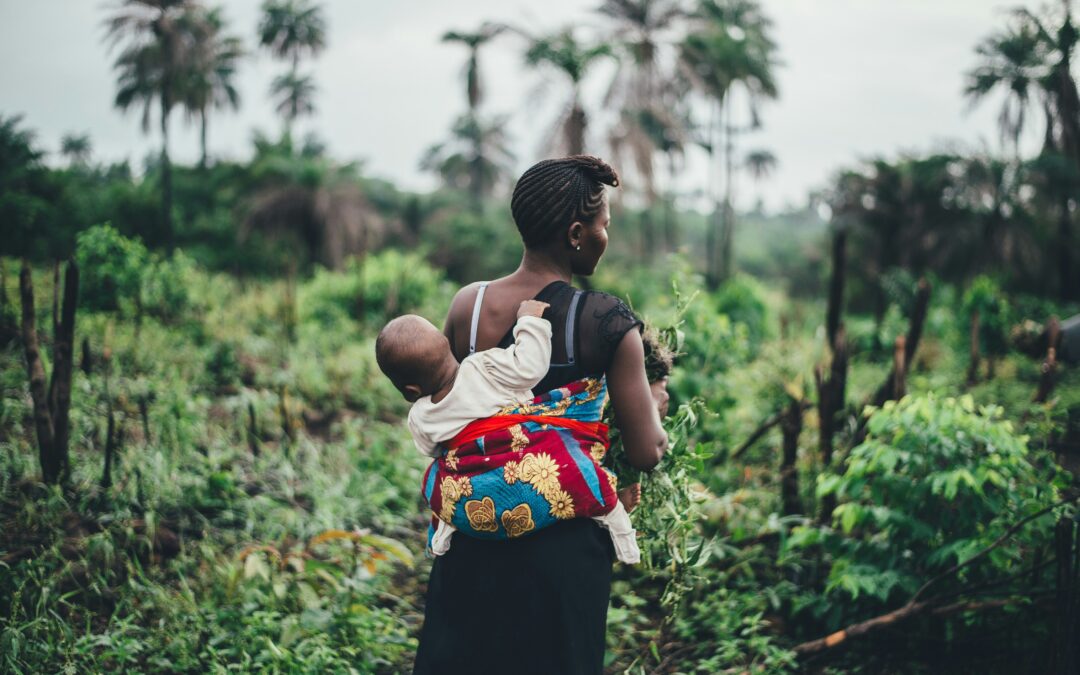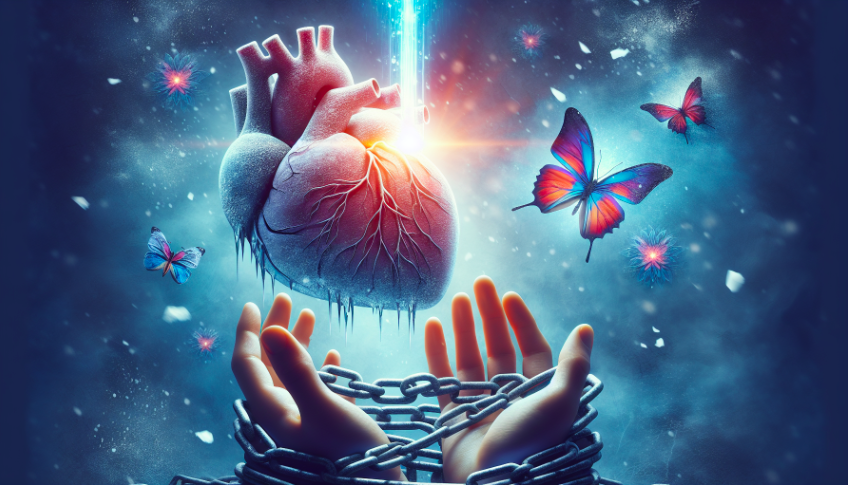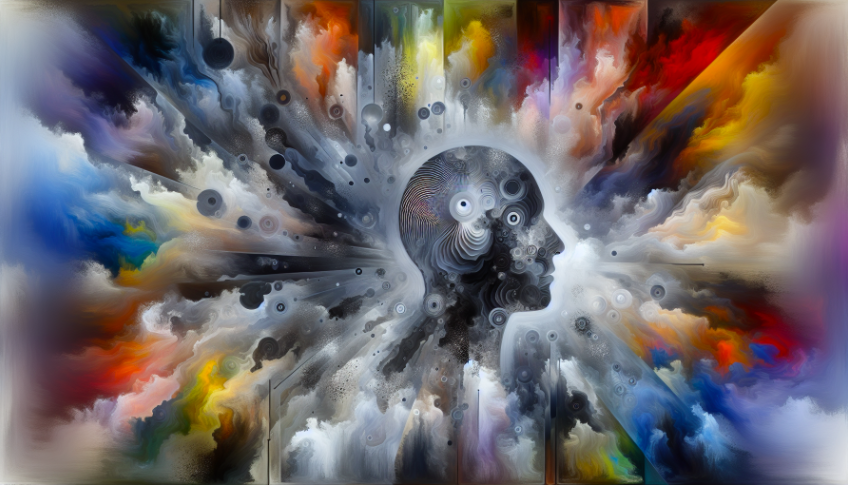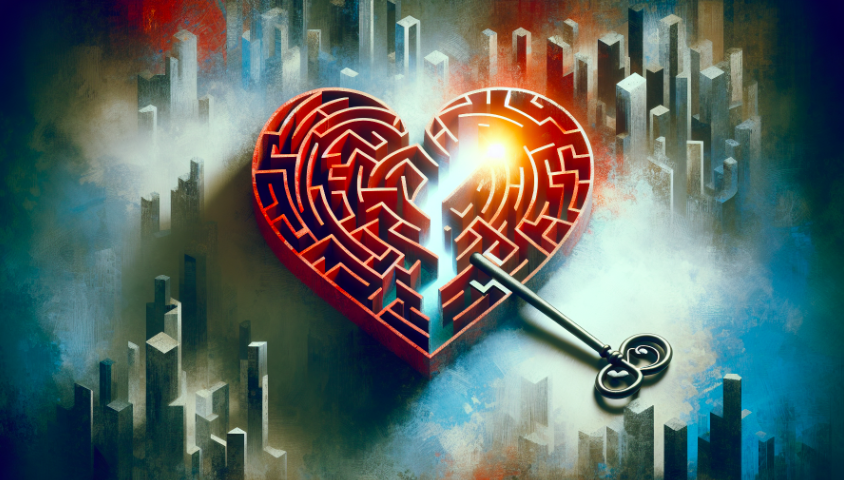In this blog, we will explore the concept of complex trauma and how it affects our society. Many people associate trauma with a single, significant event, but there is another type of trauma that can occur over a prolonged period of time – complex (or relational) trauma. This type of trauma is often experienced during childhood, within dysfunctional family systems or an emotionally immature society.
Complex trauma is not only about the events that happen to us, but also about what we don’t receive as children. Our emotional needs are essential for healthy development, and when they are consistently unmet, it can lead to trauma.
Awareness is Crucial in Healing Complex Trauma
It is crucial to become aware of the negative experiences from our childhood, particularly our relationships with our parents, as they often have a profound impact on our lives. These experiences can manifest as struggles, lack of trust, feelings of unworthiness, and hinder us from pursuing our desires.
Below you can find a more in-depth video about what happens to a child when it experiences complex relational trauma. You can read on below the video.
The Consequences of Complex Trauma
Complex trauma has far-reaching consequences, not only in our individual lives but also in society as a whole. Growing up with distrust in the collective, we often suppress our true selves to gain love, validation, and safety. We learn to ignore our emotions, cross our own boundaries, and deny our authentic selves. This type of trauma creates an inauthentic and distrustful world, where genuine connections are rare.
Living in a demanding and dysfunctional society further exacerbates the effects of trauma on our family systems. We are often unaware of the unmet needs we had as children, leading us to believe that our childhoods were good because we lack awareness of the emotional immaturity and dysfunction in our society. However, acknowledging and healing from the trauma and negative experiences of our childhood is crucial to overcoming the struggles we face in life.
We Are All Wounded
It is essential to recognize that we are all wounded in some way due to the society we live in and the relationships we had with our parents. By opening our eyes to this truth and honestly examining our childhood experiences, we can begin to acknowledge, feel, and heal the hurt and pain caused by our upbringing. This starts with understanding that our struggles, anxiety, shame, guilt, and other daily experiences are interconnected with our negative childhood experiences and trauma.
When we become aware of these connections, we can begin to address and work through them, allowing us to heal our past and the trauma we have carried with us. Trauma, whether from a single event or prolonged period of unmet emotional needs, affects our nervous system and overall well-being. It can contribute to mental health disorders, such as depression or burnout, as well as difficulties in relationships, stress, anger, fear, and a myriad of other challenges.
Intergenerational Trauma
As you can read, every human being is traumatized to some degree because of the society we are living in. But a lot of people aren’t aware of this. Consequently they have children and pass their trauma onto them. Especially when they aren’t emotionally mature and equipped enough to heal and break free from it.
In this way individual and collective trauma will be repeated over and over again. Until someone becomes aware of it and decides to heal and break the cycle. We call this trauma intergenerational trauma and we believe that this kind of trauma impacts the world the most as it is today.
Breaking The Cycle Of Complex Trauma
So, to truly save our planet and future, and change the way we live, work, relate, consume and respond to life and nature, we have to become aware of this, and start with healing our collective trauma. Finding the means and courage to say: It ends here with me. Creating the change inside of us, that we want to see outside in the world.
Download Our Free Starter Pack
& Start Your Journey of Self-discovery, Healing, Transformation & Empowerment!
When is Something Traumatic?
Something is experienced as traumatic when you find yourself in a stressful or confusing situation and you haven’t got the right tools, means or resources to handle the situation. You then perceive the situation as life-threatening and feel unsafe, powerless and helpless. This causes you to feel strong negative feelings and emotions.
Because these strong feelings and emotions are too complicated to process for you when you are a little child you want to distance yourself from them. You try to numb, ignore or suppress them and shut off those parts of yourself that remind you of that traumatic event or those strong negative feelings and emotions. That is where the first dissociation or fragmentation and thus suppression or hiding of (parts of) yourself start.
Coping Mechanisms
To deal with the situation plus the strong negative emotions, and to prevent it from ever happening again, you will do everything you have in your power to get out of it safe. You do this by creating coping (or survival) mechanism(s).
But, by doing this, the strong negative emotions won’t actually go away. They will stay with you, stored in your body, leaving their marks there. Also, your coping mechanisms seem protective and helpful in the moment, but you take them with you as you grow older. While they are no longer helpful, and sometimes even detrimental for your growth.
How Does Complex Trauma Influences Your Daily Life?
When strong negative emotions and experiences are not felt, healed and processed in a proper way, they will stay stuck and stored in your body. Unconsciously, they will dictate and control your life. Because of this, parts of you are still mentally, emotionally and physically ‘stuck in the past’ causing you to look at the world through a ‘traumatized’ lens.
Trauma & Triggers
Now, every time when you experience situations in the present moment that feel similar to the traumatic ones in the past, your body reacts to this situation. It will believe it is the same situation of the past. This then activates the memory of the traumatic event.
The strong negative feelings and emotions tied to that traumatic event or situation will come to the surface, causing you to feel e.g. hyper-aroused, hypervigilant, anxious, angry and/or numb. This in turn activates old coping mechanisms and behaviors. Keeping you in a destructive and self-sabotaging loop.
As a result you will feel unhappy, unfulfilled, depressed, lonely, anxious, stressed or even burnt-out.
How Complex Trauma Manifest Itself In Your Life
The consequences of complex trauma are vast and can manifest in various ways in our daily lives. Some common manifestations include:
- Depression or burnout
- Mental health disorders
- Challenging relationships
- Uncontrollable stress, anger, and fear
- Feelings of emptiness or constant restlessness
- Desire for constant change or escape
- Anxiety about leaving home or venturing into the world
- Lack of confidence
These manifestations are not exhaustive, but they highlight the wide range of ways in which relational trauma can impact our lives. By recognizing the connection between our past experiences and our present struggles, we can begin the healing process.
Conclusion
Complex trauma is pervasive in our society, affecting individuals from all walks of life. It is crucial to acknowledge and address this trauma to heal ourselves and create a more compassionate, authentic, and trusting world.
By becoming aware of our childhood experiences and the unmet needs we had, we can begin the journey of healing and transformation.
Just click the button below to find all our healing tools to help you start your healing journey.
HEART JOURNEY
The Ultimate Platform for Self-discovery, Healing,
Transformation & Empowerment
Become a member & gain access to all our exclusive tools for €99 per year only!
This Is How We Can Help You
Away from traditional (talk) therapy and coaching we have created new tools for self-discovery, healing, transformation and growth. Our tools follow a holistic approach where we combine somatic and emotional healing practices with psychological theory & guidance.
If you resonated with the insights shared in this blog post and are seeking guidance on your healing journey, here are 3 ways we can help you:
1. Shop In Our Webshop
In our webshop you can find all our tools sorted by theme, visit our shop here.
2. Become A Member
Become a member of our online platform & community for Self-discovery, Healing, Transformation & Empowerment: Heart Journey.
Gain instant access to all our Meditations, Somatic Exercises, Parts Work Exercises, Videos, Visualizations and much more for just €11,99 per month or €99 per year!
Start your 5 day free trial here.
3. 1-on-1 Guidance
Feel in need of personal guidance? We offer 1-on-1 guidance that transcends classic talk therapy & coaching, speaks directly to the emotions and trauma stored and suppressed in the body, and gets to the root of mental, emotional & physical suffering. Just click here to book a free intake.
Related Blogs

Healing The Mother Wound: Reparenting Your Inner Child
In this blog, we will talk about the most important relationship in your life—your very first relationship, the one with your mother. When this relationship is distorted, it can result in the mother wound. This wound is a deep emotional and psychological pain caused...

The Wound Of Unworthiness: Why You Don’t Love Yourself
Living in a society like ours forces people to live in survival mode. This environment compels individuals to suppress their true selves to fit in and survive. The need to work hard every day to make ends meet adds to the pressure. For centuries, we've been caught in...

Depression: A New Perspective
If you are someone who sometimes or often feels depressive or has a depression, then this blog is for you. In this blog, we will explore a different perspective on depression and how it can be seen as a coping mechanism rather than a disorder or disease. By...

From Powerlessness to Personal Power
Experiencing powerlessness in life can stem from a deep suppression of parts of your authentic self. This suppression may have originated from childhood trauma, negative experiences, or societal conditioning that led you to believe certain aspects of yourself were...

How To Overcome Fear
If there is one emotion that is often holding people back from healing from their past, expressing their authentic self, or transforming themselves and their lives, it is fear. The fear of being rejected, abandoned, or fail for example. But fear can manifest itself in...



